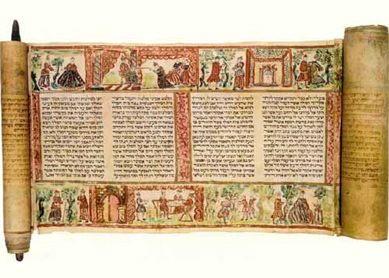Introduction
In the increasingly interconnected world of contemporary literature, the theme of diaspora has taken center stage. Authors from diverse cultural backgrounds are crafting narratives that delve into the profound experiences of migration and exile. These works illuminate the complexities of displacement, the search for identity, and the yearning for a sense of home. In this article, we embark on a literary journey through the literature of the diaspora, examining its origins, key characteristics, and its significant contribution to modern storytelling.
In our ever-shrinking world, where borders blur and societies become more interconnected, the literature of the diaspora emerges as a poignant and relevant genre. The experiences of migration and exile have become defining themes of our era, as people move across continents, driven by a myriad of factors such as conflict, economic opportunity, or the pursuit of a better life. As these global movements continue to reshape our societies, contemporary authors are seizing the opportunity to tell stories that reflect the diverse and complex nature of diasporic experiences.
The heart of diaspora literature beats with the pulse of humanity’s collective journey. It invites readers to traverse the paths taken by countless individuals and communities who have been uprooted from their homelands. Through the lens of these narratives, we gain insight into the profound emotional landscapes that migration and exile entail. The characters within these stories confront the multifaceted challenges of displacement, whether it’s the sense of loss, the struggle to adapt to a new culture, or the longing for a place they can truly call home.
One of the most compelling aspects of diaspora literature is its ability to illuminate the intricacies of identity. Within these narratives, characters often find themselves at the crossroads of their ancestral heritage and the culture of their adopted homeland. The resulting cultural hybridity becomes a source of both tension and richness, as characters grapple with questions of assimilation, preservation of traditions, and the formation of a distinct sense of self.
At the core of diaspora literature lies the exploration of belonging. In a world where borders are permeable, what does it mean to belong? These narratives compel readers to ponder this question deeply. They capture the universal yearning for a place where one’s identity is not fractured by displacement but rather celebrated for its complexity. Through the pages of these books, we discover that the quest for home is not solely about a physical location but also a profound emotional and cultural connection.
The authors who have embraced diaspora literature as their canvas are as diverse as the stories they tell. They hail from different corners of the world, each bringing their unique perspective and voice to the genre. Writers like Chimamanda Ngozi Adichie, Jhumpa Lahiri, and Junot Díaz, among many others, have etched their names into the annals of contemporary literature by crafting narratives that resonate with readers worldwide. Their works stand as bridges between cultures, inviting readers to step into the shoes of characters who are simultaneously rooted in tradition and soaring toward new horizons.
In a world that is constantly on the move, diaspora literature serves as both a reflection and a compass. It reflects the human experience in all its complexity, mirroring the journeys of countless individuals who have crossed borders, overcome adversity, and contributed to the rich tapestry of our global society. It also serves as a compass, guiding us toward a deeper understanding of our shared humanity and the universal themes that bind us together, regardless of where we come from or where we may be headed. As we delve into the literature of the diaspora, we embark on a profound exploration of the human spirit, one that resonates with the timeless and universal quest for a place to call home.
For additional details, consider exploring the related content available here Introduction | Transnational Narratives of Migration and Exile
The term “diaspora” originally referred to the dispersion of Jewish communities from their homeland. However, it has since evolved to encompass the experiences of any group or community forced to migrate or live in exile. The roots of diaspora literature can be traced back to the narratives of those who were uprooted from their homelands due to historical events, political conflicts, or economic pressures.
The term “diaspora” carries a rich historical and cultural legacy, originally rooted in the dispersion of Jewish communities from their ancestral homeland. However, the concept of diaspora has undergone a transformative evolution, broadening its scope to encompass the experiences of countless other groups and communities who have been compelled to migrate, live in exile, or navigate the complexities of identity and belonging in foreign lands. This expansion of the diaspora concept has given rise to a vibrant and diverse genre of literature known as diaspora literature.
Diaspora literature, as a genre, finds its origins in the narratives of those who were forcibly uprooted from their homelands due to a myriad of factors. Historical events, ranging from the Jewish diaspora following the destruction of the Second Temple in Jerusalem to the forced migration of African communities during the transatlantic slave trade, laid the foundation for early diaspora literature. These narratives often served as a means of preserving cultural memory and conveying the profound sense of displacement and longing experienced by those who were torn from their roots.
As time progressed, the diaspora concept extended its reach to include communities affected by political conflicts, such as the Armenian diaspora following the Armenian Genocide, or economic pressures, exemplified by the Indian diaspora that emerged as a result of labor migration during the British colonial period. Each of these diasporic experiences brought forth a unique tapestry of literature, bearing witness to the resilience, adaptability, and transformative power of human identity in the face of displacement.
Diaspora literature is a testament to the enduring human spirit and the capacity of literature to transcend borders, both physical and metaphorical. These narratives provide a lens through which readers can explore the complexities of identity, the negotiation of belonging in foreign lands, and the preservation of cultural heritage in diasporic communities.
In contemporary times, diaspora literature continues to flourish, encompassing a wide range of voices and experiences. Authors from diverse backgrounds and geographies contribute to this genre, offering narratives that resonate with the challenges and triumphs of diasporic life. From the African diaspora in the Americas to the South Asian diaspora in Europe, these stories serve as bridges between cultures, fostering understanding, empathy, and a shared sense of humanity.
In sum, the evolution of the diaspora concept from its origins in Jewish history to its embrace of various global communities has given birth to a rich and multifaceted genre of literature. Diaspora literature not only illuminates the experiences of those who have been uprooted from their homelands but also offers a profound exploration of the human spirit’s capacity to endure, adapt, and find new avenues of belonging in an ever-changing world.
You can also read more about this here: Introduction | Diasporic ModernismsHebrew and Yiddish Literature …

Diaspora literature is a genre that explores the complex dynamics of migration, displacement, and the search for belonging. It often centers on characters who navigate the tension between their ancestral heritage and their adopted homeland. These narratives capture the emotional and psychological struggles of individuals and communities as they grapple with issues of identity, assimilation, and cultural preservation.
Diaspora literature, a genre of profound cultural significance, delves into the intricate and deeply human stories that unfold when people traverse geographical and cultural boundaries. These narratives are rich tapestries, interwoven with the threads of migration, displacement, and the ceaseless quest for a sense of belonging.
At its heart, diaspora literature serves as a compass guiding readers through the labyrinthine experiences of characters who find themselves straddling two worlds. These characters grapple with the weight of ancestral heritage and the promise of a new life in an adopted homeland. Their journeys become microcosms of the broader human experience, reflecting the universal themes of identity, cultural preservation, assimilation, and the profound longing for a place to call home.
The emotional resonance of diaspora literature lies in its ability to capture the multifaceted struggles faced by individuals and communities as they navigate the complexities of their dual existence. These narratives are imbued with the bittersweet nostalgia for a homeland left behind, the exhilaration and trepidation of starting anew, and the relentless tug-of-war between the past and the present.
Identity, a cornerstone of these stories, emerges as a central theme. Characters grapple with questions of who they are, where they come from, and where they belong. It is a deeply personal and sometimes agonizing quest, one that forces them to confront the fragility of cultural ties and the transformative power of adaptation.
Assimilation, on the other hand, reveals the tension between embracing the culture of the adopted homeland and preserving the traditions and values of the homeland left behind. This delicate balancing act can be fraught with challenges, leading to a profound examination of what it means to be both an individual and a member of a larger community.
Cultural preservation, a driving force in diaspora literature, emerges as a testament to the enduring resilience of heritage. It is a celebration of language, customs, and rituals that serve as anchors in a sea of change. These narratives showcase the richness of diverse cultures and the ways in which they evolve and thrive, even in the face of adversity.
In essence, diaspora literature is a powerful testament to the human spirit’s ability to adapt, persevere, and ultimately find its place in the world. These stories are bridges that connect us across geographical and cultural divides, inviting us to explore the shared human experiences that transcend borders. Through diaspora literature, we gain insight into the profound complexities of migration and displacement, and we bear witness to the timeless search for a place to call home—a search that unites us all in our shared journey of self-discovery and belonging.
For a comprehensive look at this subject, we invite you to read more on this dedicated page: The Mosaics of National Identity in the Arab American Diaspora …

Diaspora literature often celebrates cultural hybridity, where characters find themselves straddling multiple worlds and identities. This blending of cultures leads to rich and diverse narratives.b. Transnational Perspectives: These narratives transcend borders, offering readers a global perspective on migration and exile. Authors draw on their own experiences or extensive research to paint a nuanced picture of the diasporic journey.c. Multigenerational Narratives: Many diaspora novels span multiple generations, allowing readers to witness the lasting impact of migration on families and communities. These narratives often explore the transmission of cultural traditions and the evolution of identity.
For additional details, consider exploring the related content available here Transnational | Oxford Research Encyclopedia of Literature

Adichie’s “Americanah” explores the immigrant experience through the lens of a young Nigerian woman who moves to the United States. The novel delves into themes of identity, race, and the complexities of returning home.b. Jhumpa Lahiri: Lahiri’s “The Namesake” traces the life of a young Indian-American named Gogol, exploring his struggle to reconcile his Bengali heritage with his American upbringing.c. Junot Díaz: Díaz’s “The Brief Wondrous Life of Oscar Wao” follows the journey of a Dominican-American family, weaving together elements of history, fantasy, and the immigrant experience.
Literature, as a powerful medium of storytelling, has the remarkable ability to illuminate the immigrant experience with empathy and depth. These three outstanding authors, Chimamanda Ngozi Adichie, Jhumpa Lahiri, and Junot Díaz, have created works that delve into the complexities of immigration, cultural identity, and the intricate tapestry of human lives.
Adichie’s “Americanah” offers readers a compelling glimpse into the life of Ifemelu, a young Nigerian woman who embarks on a journey to the United States. Through her experiences, we witness the profound impact of immigration on one’s sense of self. The novel delves into the multifaceted nature of identity, exploring how the immigrant experience can transform and shape an individual’s perception of themselves and their place in the world. It also confronts the often thorny issue of race in America, shedding light on the challenges and triumphs of navigating a society marked by racial divisions. As Ifemelu contemplates the complexities of returning home to Nigeria, readers are invited to reflect on the concept of home itself and the enduring connection to one’s roots.
Jhumpa Lahiri’s “The Namesake” offers a poignant exploration of the struggles faced by young Gogol, an Indian-American, as he grapples with the duality of his identity. Raised in the United States but deeply rooted in Bengali culture, Gogol’s journey is a heartfelt exploration of the tensions and reconciliations between heritage and assimilation. The novel is a universal story of how individuals straddle the lines of tradition and modernity, family and independence, and how the process of self-discovery can be both liberating and challenging. Through Gogol’s experiences, Lahiri encourages readers to contemplate the significance of one’s name, which can serve as a powerful symbol of cultural inheritance.
Junot Díaz’s “The Brief Wondrous Life of Oscar Wao” takes readers into the heart of a Dominican-American family and delves into the immigrant experience through a lens of history, fantasy, and vivid storytelling. The novel weaves together the struggles and dreams of Oscar Wao, a nerdy, overweight Dominican teenager, with the larger narrative of the Trujillo regime’s impact on the Dominican Republic. Díaz’s work is a testament to the enduring legacy of history on the lives of immigrants and their descendants. It also blends elements of magical realism and fantasy, adding depth and a sense of wonder to the immigrant experience, while highlighting the power of storytelling to confront and heal the wounds of the past.
In the hands of these gifted authors, the immigrant experience is rendered with nuance and authenticity. Their works invite readers to step into the shoes of their characters, to feel their joys, struggles, and triumphs, and to gain a deeper understanding of the rich tapestry of human lives. Through literature, these authors bridge cultures and generations, offering insights that transcend borders and remind us of the shared human experience that unites us all.
Don’t stop here; you can continue your exploration by following this link for more details: Transculturalism, Otherness, Exile, and Identity in Chimamanda …

Diaspora literature holds a mirror to our globalized world, offering profound insights into the human condition. It reminds us of the resilience of individuals and communities in the face of displacement, and it highlights the enduring importance of cultural heritage and the quest for a sense of belonging.
Diaspora literature, like a multifaceted gem, refracts the complexities of our globalized world, presenting a rich tapestry of human experiences and emotions. It is a literary mirror reflecting the poignant narratives of individuals and communities who have endured displacement, transcending geographical boundaries and connecting us through shared tales of resilience, identity, and the unending quest for a sense of belonging.
In these narratives, we encounter stories of individuals torn from their homelands, navigating unfamiliar terrain, and struggling to bridge the gap between their past and present. These stories lay bare the profound impact of displacement, highlighting the disorientation,
Looking for more insights? You’ll find them right here in our extended coverage: Identity, Home and Writing Elsewhere in Contemporary Chinese …

Conclusion
The literature of the diaspora represents a vital and evolving genre in contemporary literature. It amplifies the voices of those who have experienced migration and exile, shedding light on the challenges and triumphs of individuals and communities navigating the complexities of a world in constant motion. Through the pages of diaspora literature, readers embark on journeys of self-discovery, cultural exploration, and empathy, connecting with characters who grapple with the profound question of what it means to belong in a world defined by movement and change.
Diaspora literature is not static; it is a dynamic genre that evolves alongside the ever-changing landscapes of our world. In the 21st century, this genre is more vital than ever, as it continues to shed light on the multifaceted experiences of migration and exile. As our global society becomes increasingly interconnected, the narratives emerging from the diaspora capture the essence of our time, resonating with readers from diverse backgrounds and offering profound insights into the human condition.
One of the remarkable aspects of diaspora literature is its ability to amplify voices that might otherwise remain unheard. These narratives serve as a powerful platform for individuals and communities to share their stories, their struggles, and their triumphs. Through the pages of these books, readers encounter a chorus of voices, each with its unique melody, harmonizing to create a symphony of human experience. These stories reveal the resilience of those who have been forced to leave their homelands, emphasizing the strength it takes to adapt, to persevere, and to thrive in unfamiliar terrain.
Within the narratives of diaspora literature, we find the profound journeys of self-discovery. Characters grapple with questions of identity, not merely as a matter of nationality or ethnicity but as a holistic exploration of who they are in a world marked by diversity and interconnectedness. These literary odysseys take readers on transformative voyages alongside the characters, as they navigate the intersections of culture, heritage, and personal growth.
Cultural exploration is another hallmark of diaspora literature. It serves as a bridge, inviting readers to step into the worlds and traditions of different cultures and societies. Whether it’s the vibrant tapestry of a Nigerian market, the familial bonds of a Bengali household, or the rhythms of a Dominican neighborhood, these narratives transport readers to places they may never physically visit but can intimately know through the power of storytelling.
Empathy is perhaps the most profound gift that diaspora literature bestows upon its readers. As we immerse ourselves in the lives and struggles of characters who grapple with the question of belonging, we can’t help but develop a deeper understanding of the universal human experience. These narratives encourage us to walk in the shoes of others, to see the world through their eyes, and to feel the weight of their challenges and the elation of their triumphs.
In a world defined by movement and change, the literature of the diaspora remains a steady guide. It reminds us that the human spirit is resilient, adaptable, and capable of enduring and flourishing in the face of adversity. These narratives reveal the interconnectedness of our global society, reminding us that the quest for belonging is a universal pursuit, shared by individuals and communities worldwide.
As we continue to navigate an ever-shifting world, the literature of the diaspora stands as a testament to the enduring power of storytelling. It is a genre that evolves and adapts to reflect the times while upholding the timeless themes of human resilience, cultural richness, and the universal longing for a place to call home. Through these narratives, we embark on a profound and transformative journey—a journey that transcends borders and connects us to the shared experiences that bind us all together in this world of constant motion and change.
Looking for more insights? You’ll find them right here in our extended coverage: Courses – Anthropology & Sociology – Knox College
More links
Explore this link for a more extensive examination of the topic: Introduction | Transnational Narratives of Migration and Exile
